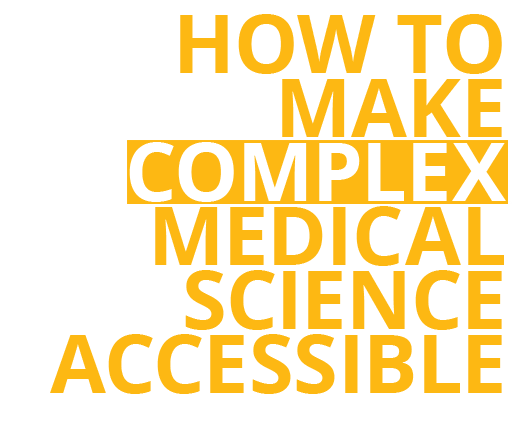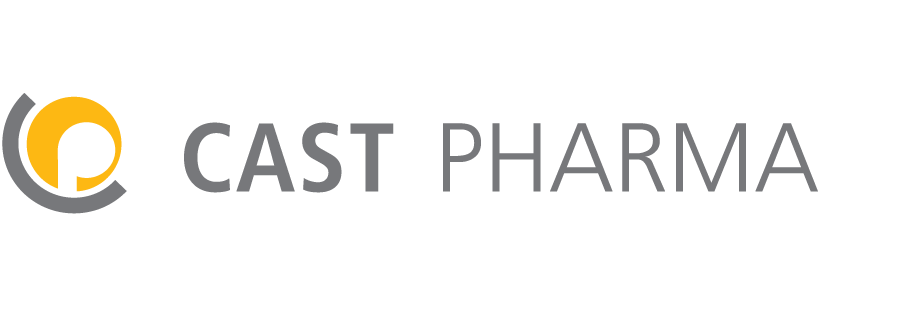Everyone employed in marketing, medical affairs, learning, and training encounters the challenges of communicating complex, scientific material in a clear and accessible manner. This expert blog contains advice and best practices for presenting scientific information to your target audience, from pedagogy to design, technical specs to usability, timelines to costs and everything in between.


VISUALSTORYTELLING
Visual stories for:
Output formats:
If you are looking for our animal health solutions, please visit our website
CAST ANIMAL HEALTH

How slides can be significantly improved with three simple steps
/in Medical affairs & medical marketing, Medical learning & training, Scientific slide decks, Medical congresses & conferences /by Eva Anne RentzschWith today’s slides, the “before and after” effect is not immediately obvious, but we still have some tips for their improvement that can be applied to many other cases. Notice that the initial slide uses the same colors for both the left and right infographics. This is misleading for the viewer, because the representations actually have nothing to do with each other.
Read more
How to present facts with visual storytelling
/in Scientific slide decks, Medical congresses & conferences, Medical affairs & medical marketing, Medical learning & training /by Eva Anne RentzschToday we want to look at an example of how facts can be either lost or presented with impressive visual storytelling. The initial slide lists too many facts as boring bullet points, so the target audience is forced to read text instead of focusing on the presenter.
Read more
How simple infographics can add value to your presentation
/in Scientific slide decks, Illustrations & infographics, Medical congresses & conferences, Medical affairs & medical marketing, Medical learning & training /by Eva Anne RentzschToday’s slide illustrates how simple infographics in combination with precise statements can add value to your presentation. The original slide shows a clear gap between visuals and texts: the visuals fail to support the content, misdirect the viewer’s focus, and are even misleading.
Read more
Transforming a boring image with bullet points into a slide reflecting the beauty and complexity of nature
/in Scientific slide decks, Illustrations & infographics, Medical congresses & conferences, Medical affairs & medical marketing, Medical learning & training /by Stefan WolfRead more
How poorly designed slide decks can have devastating consequences in the pharma industry
/in Scientific slide decks, Medical congresses & conferences, Medical affairs & medical marketing, Medical learning & training /by Thomas FreiRead more
Understanding the concept of an anti-tumor vaccine
/in Scientific slide decks, Medical congresses & conferences, Medical affairs & medical marketing /by Anita KunertRead more
How to build better slide decks
/in Scientific slide decks, Medical congresses & conferences, Medical affairs & medical marketing, Medical learning & training /by Thomas FreiRead more
Stress response physiology
/in Scientific slide decks, Medical congresses & conferences, Medical affairs & medical marketing, Medical learning & training /by Stefan WolfRead more
Escape Mechanisms Slide Deck
/in Scientific slide decks, Medical congresses & conferences, Medical affairs & medical marketing, Medical learning & training /by Stefan WolfRead more
How to effectively retain knowledge
/in Medical learning & training, eLearning & engaging activities /by Katrin Rudolf, PhDIt happens. Mixing up terms, stumbling over complicated phrases, or forgetting key information. Whether working in sales or medical affairs, it can be tough to remember all the details. The cost of forgetting can mean not being taken seriously by peers or even damaging relationships with KOLs. Read more
Reinforcement training tools: How to develop transferable knowledge
/in Medical learning & training, eLearning & engaging activities /by Katrin Rudolf, PhDLearning is not a singular event. It’s a journey. A crucial part of this journey is developing transferable knowledge that lets us apply what we’ve learned in many different contexts.
Learning facts, concepts, and terminology is the first step towards developing transferable knowledge. When taking this first step, learners may face these three challenges: Read more
Engaging eLearning tools with a fresh editorial design
/in Medical learning & training, eLearning & engaging activities /by Julia Reinhard, PhDEvery day, employees working in medical affairs use high-quality apps and read interactive digital publications with a sleek and clean design. They do all of this after they get home from work. And the next day the same employees go to work and sit in front of boring slides to learn information crucial for their profession. How design can engage or derail an eLearning. Read more
How to create an effective learning and development program for medical affairs–part 2
/in Medical affairs & medical marketing, Medical learning & training, eLearning & engaging activities /by Anja Kloss, PhDAn interview with Thomas Frei, executive creative director at CAST PHARMA
This is the second part of an interview with Thomas Frei, executive creative director of CAST PHARMA, offering insights into the learning and development (L&D) philosophy of CAST PHARMA. Read more
How to create an effective learning and development program for medical affairs–part 1
/in Medical affairs & medical marketing, Medical learning & training, eLearning & engaging activities /by Anja Kloss, PhDAn interview with Thomas Frei, executive creative director at CAST PHARMA
Learning and development (L&D) is something that accompanies you throughout your entire life. Learning for your career does not end with graduation or an academic degree. Read more
Sharpening the message of key study results
/in Medical affairs & medical marketing /by Stefan WolfTo differentiate their product from the competition, communicating the results of scientific studies is crucial for pharmaceutical and biotech companies. Their MSLs need effective tools in order to be able to engage health care professionals in a meaningful dialogue. Read more